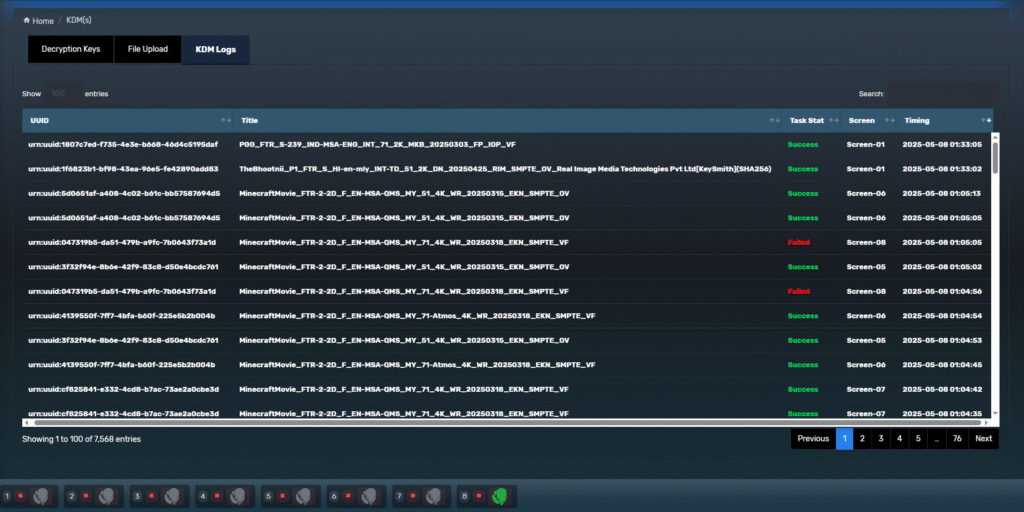The KDM Logs tab provides a historical view of all KDM (Key Delivery Message) ingestion activities across your TMS environment. It helps operators verify whether KDM files were correctly processed and ingested into the appropriate screen servers.
📋 Interface Overview #

| Field | Description |
|---|---|
| UUID | Unique identifier of the ingested KDM file |
| Title | CPL or feature title associated with the KDM |
| Task Stat | Status of the ingest process: Success (green) or Failed (red) |
| Screen | Screen or auditorium where the KDM was applied |
| Timing | Timestamp of the ingestion attempt |
🔎 Usage #
- Search by Title or UUID using the top-right search bar to quickly locate specific ingests.
- Paginate through thousands of records for long-term tracking (TMS stores complete key history).
🛠️ Troubleshooting Failures #
Failed entries may result from:
- KDM does not match the IMB serial number (common with incorrect cert types).
- Server not powered on or projector in standby mode (if IMB is embedded in the projector).
- Expired or corrupted file.
- Attempting to ingest legacy
MPEGorSMS-cert KDMs on modernSMPTEservers.
✅ Tip: Prefer
SHA256-signed,cert-type KDMs when targeting modern SMPTE-compatible DCPs. Avoid uploading multiple incompatible KDMs (e.g.,chain.sms,chain.mpeg) to reduce playback risk.
🧾 Log Retention & Audit #
KDM Logs serve as an audit trail for content security compliance. They help:
- Verify ingest timelines for distributor requirements.
- Prove decryption key presence during playback investigations.
- Confirm which screen received which version of the key.
This makes the KDM Logs an essential tool in managing encrypted content securely and efficiently within the cinema ecosystem.